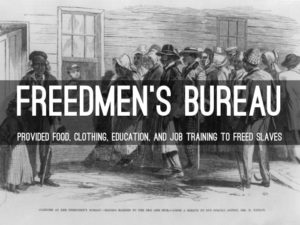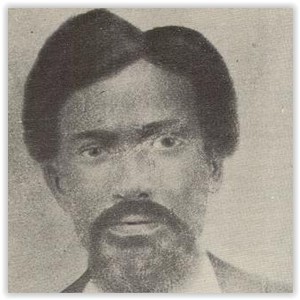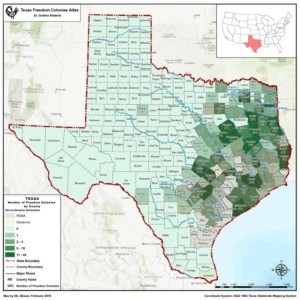News of emancipation set off an unprecedented chain of events as newly-freed African American men and women walked away from plantations, scattering across East Texas, where the majority of the state’s black population was located. They searched for freedom, whatever that might be, including searching for separated family members, and slowly began starting all-black communities, businesses, schools, churches, entering politics, and generally relishing their first tastes of freedom.
Former slaves African American (AA) families aggressively pursued land ownership after the Civil War in Texas. Clusters of agrarian, land-owning settlements or “Freedom Colonies” emerged from secluded areas. Freedom Colonies also were known as Freedmen’s Towns, “my family place”, “where we go for homecoming”, Black settlements, or “the Black side of town”. Former slaves in Texas founded these communities 1866-1920. (more)

The Freedmen’s Bureau, formally known as the Bureau of Refugees, Freedmen and Abandoned Lands, was established in 1865 by Congress to help millions of former black slaves and poor whites in the South in the aftermath of the Civil War. The Freedmen’s Bureau provided food, housing and medical aid, established schools and offered legal assistance. It also attempted to settle former slaves on land confiscated or abandoned during the war. (more)

Fifty-two African-American men (including Matthew Gaines, pictured here) served Texas as either state legislative members or Constitutional Convention delegates during the last half of the 19th century, representing the first significant political achievement by the African-American citizens of this state. They were elected more than one hundred years ago amidst the commonly-held belief of whites at that time that African-Americans were inferior subordinates whose absorption into society as free people would lead to the breakdown of civilization.

